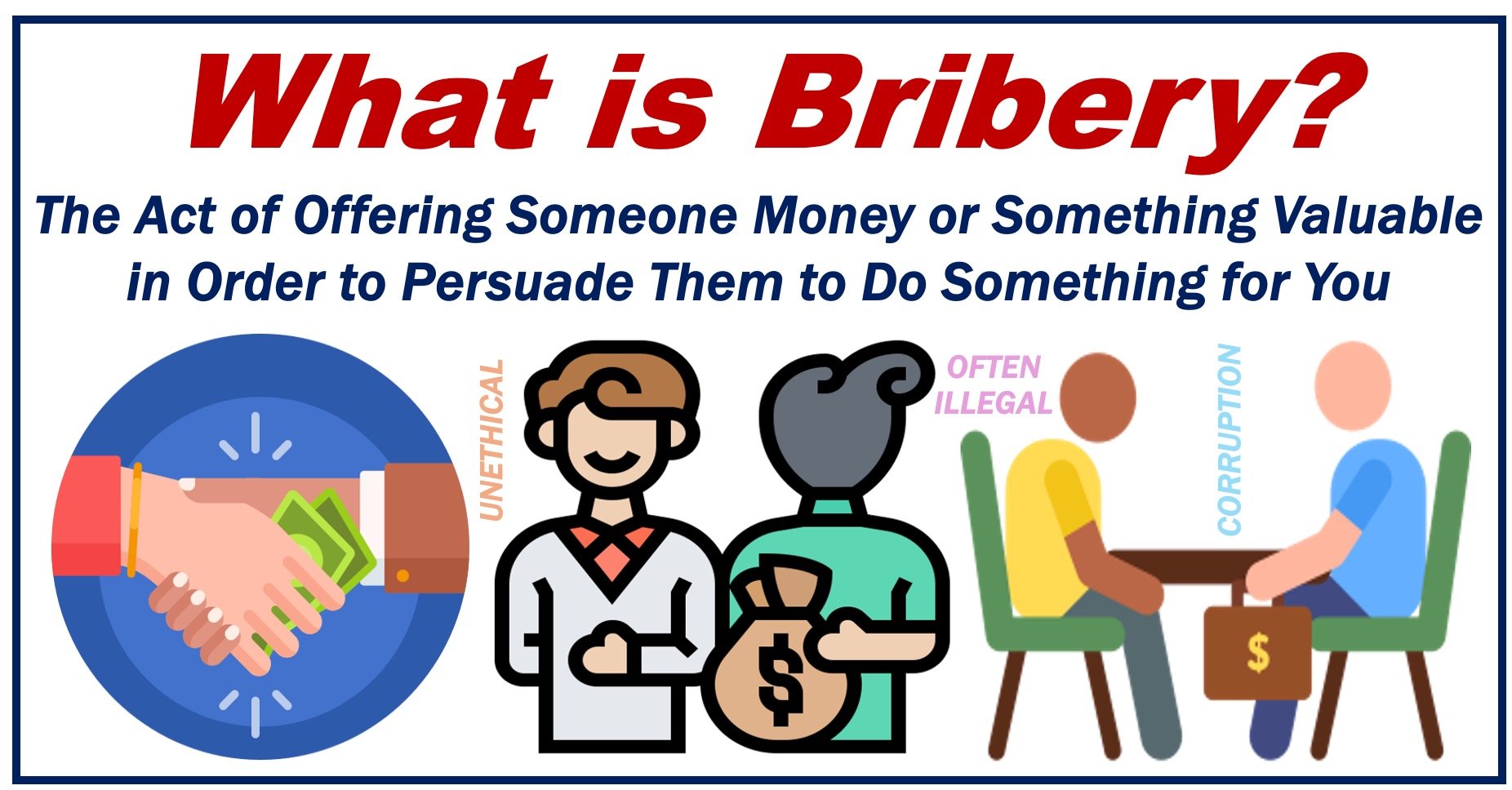If you attempt to make a person do something for you by giving them money, you are committing Bribery. Sometimes, the person who is bribing may give them a present or something they want, instead of money.
At its core, bribery involves two parties – the giver of the bribe, and the receiver who accepts it. The intention of the bribe is to influence the receiver’s behavior, persuading them to act in a way that benefits the giver. Often this happens at the expense of others or the public good.
The Cambridge Dictionary has this definition of “bribery”:
“1. An attempt to make someone do something for you by giving the person money, presents, or something else that they want. 2. The crime of giving someone money or something else of value, often illegally, to persuade that person to do something you want.”
Strongly associated with illegal activity
We usually use the term ‘bribery’ when this action is a crime, for example, if you pay a police officer to ignore something illegal that you did.
We can also use the term humorously or informally. If I say, “I bribe my son to do his homework by giving him a special treat,” I am not talking about an illegal activity.

Bribery – corruption
Bribery is a form of corruption that exists all over the world. It can occur in various contexts, including government, business, and everyday interactions. It affects the integrity and fairness of processes and decisions.
Corruption encompasses a wide range of unethical and illegal activities designed to benefit individuals or groups at the expense of public trust and integrity. Here are some key components of corruption, including bribery, with brief definitions:
-
Bribery
Offering or receiving something valuable to influence a decision.
-
Embezzlement
Stealing or misusing funds one is responsible for.
Deceiving others for personal gain.
Payments made in return for facilitating transactions or services.
-
Nepotism
Favoring relatives or friends for jobs or benefits.
Extortion: Forcing someone to give up property through threats.
Disguising the origins of illegally obtained money.
-
Conflict of Interest
A situation where personal interests could interfere with professional duties.
-
Clientelism
Exchanging goods or services for political support.
-
Graft
Exploiting one’s position for personal gain.
-
Influence Peddling
Using one’s position or connections to gain favors.
-
Cronyism
Appointing friends or associates to positions of authority without merit.

Consequences of bribery
Corruption erodes institutions, undermines economic development, and distorts market mechanisms.
In the public sector, it can lead to the construction of inferior infrastructure. For example, let’s say I have a company that builds tunnels. The government is asking for bids for a major tunnel project. I bribe a public official to give me the contract, and it is subsequently awarded to me.
I will have less money to build the tunnel because I had to pay an expensive bribe. That means I might have to use cheaper materials for the project. If the tunnel collapses one day, it may be because it was badly built.
This example shows how bribery can stifle competition in the business world and endanger human life.
Bribery and legislation
There are laws and regulations that prohibit corruptive behaviors. There are also ethical initiatives aimed at promoting integrity and transparency.
Anti-bribery laws, such as the Foreign Corrupt Practices Act in the United States and the Bribery Act in the United Kingdom, criminalize the act of offering or receiving bribes, including those to foreign officials.
Companies, government departments, and other organizations can reduce corruption by implementing policies and training programs.
We all have a collective responsibility to uphold ethical standards, ensuring that decisions and actions are guided by merit and not by undue influence.
